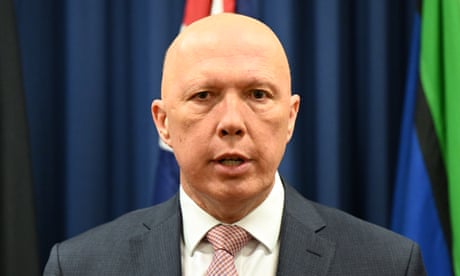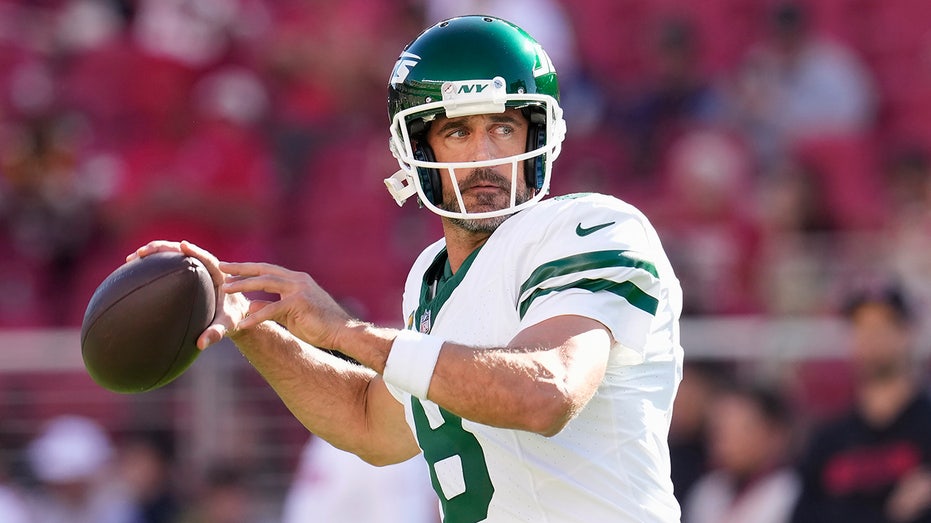- by foxnews
- 26 May 2025
Peter Dutton says rescue of Australian women and children from Syria poses risk that ‘can’t be mitigated’
Peter Dutton says rescue of Australian women and children from Syria poses risk that ‘can’t be mitigated’
- by theguardian
- 06 Oct 2022
- in news

The office of the home affairs minister, Clare O'Neil, condemned the opposition leader's comments, saying the planned repatriation mission was being undertaken "consistent with security advice".
As a former member of the national security committee, Dutton "should know better than to provide public commentary on briefings provided to him by our national security agencies", a spokesperson for O'Neil said.
The Australian government is implementing a plan to repatriate about 60 women and children - wives, sons and daughters of slain or jailed Islamic State combatants - who have been held for more than three years in detention camps in north-east Syria.
They will be brought to Australia in a series of staged repatriations.
Dutton was offered a briefing by the director general of Asio, Mike Burgess, on potential risks to national security when the women and children were returned.
Dutton said while he would not go into detail of the "top secret" briefing: "I must say that I am more strongly of the view now that there is a very significant risk in bringing some of these people to our country that can't be mitigated, frankly, not to the level we would require to keep Australians safe."
For security reasons, details of the repatriation mission are being kept closely guarded, but Dutton argued "the government really needs to explain properly what it is they're proposing here".
As home affairs minister, Dutton oversaw the repatriation of eight Australian orphans, including a pregnant teenager, from the Syrian camps in 2019. But following that successful mission, the former government refused to bring more of its citizens out, citing security concerns, both in undertaking the rescue mission and from those nationals once back in Australia.
Sources with knowledge of the current planned operation argue it is in Australia's national security interests to remove the women and children from the dangerous and potentially radicalising environment of the camps as soon as practicable and to bring them into Australia under government supervision and control, given as citizens they would ultimately have the right to return anyway.
The repatriation operation will prioritise between 20 and 30 people from the most vulnerable families, including those with very young or sick children and women whom the government believes were trafficked or coerced into Syria by their former husbands.
Some women face the possibility of criminal charges on return to Australia, for terrorism offences, or for having entered a declared area, Syria's al-Raqqa province.
Dutton said the children - more than 40 of the Australian cohort are children, the majority aged under six - were in "dreadful circumstances".
"But where we've got young males potentially of fighting age who have been indoctrinated over the course of the last decade or so, in some instances, where they've been living for years now in a camp - socialising with people who have either committed terrorist attacks or who have been planning terrorist attacks - then we need to take it very seriously."
But a spokesperson for O'Neil said the federal government's "consideration of these matters is consistent with the security advice provided by our agencies".
Dozens of other countries - including France, Germany, Sweden and the Netherlands - have repatriated hundreds of their citizens from Syria.
And in April, a United Nations investigation criticised the Australian government for failing to bring its nationals home.
Eight Australian human rights and aid agencies issued a joint statement this week welcoming the planned repatriation mission as a chance for Australian children and their mothers "to return home to their families and begin their recovery".
"The first Australian children to be brought home, back in 2019, are reported to be now living normal lives in the community, attending school and playing sport. A decision to repatriate the remaining children would provide them with the same opportunities."
- by foxnews
- descember 09, 2016
Airbnb deploys 'anti-party technology' for Memorial Day and Fourth of July weekends
Airbnb enhances its "anti-party technology" to curb disruptive events during Memorial Day and Fourth of July weekends, the company says, affecting travel and party plans nationwide.
read more


